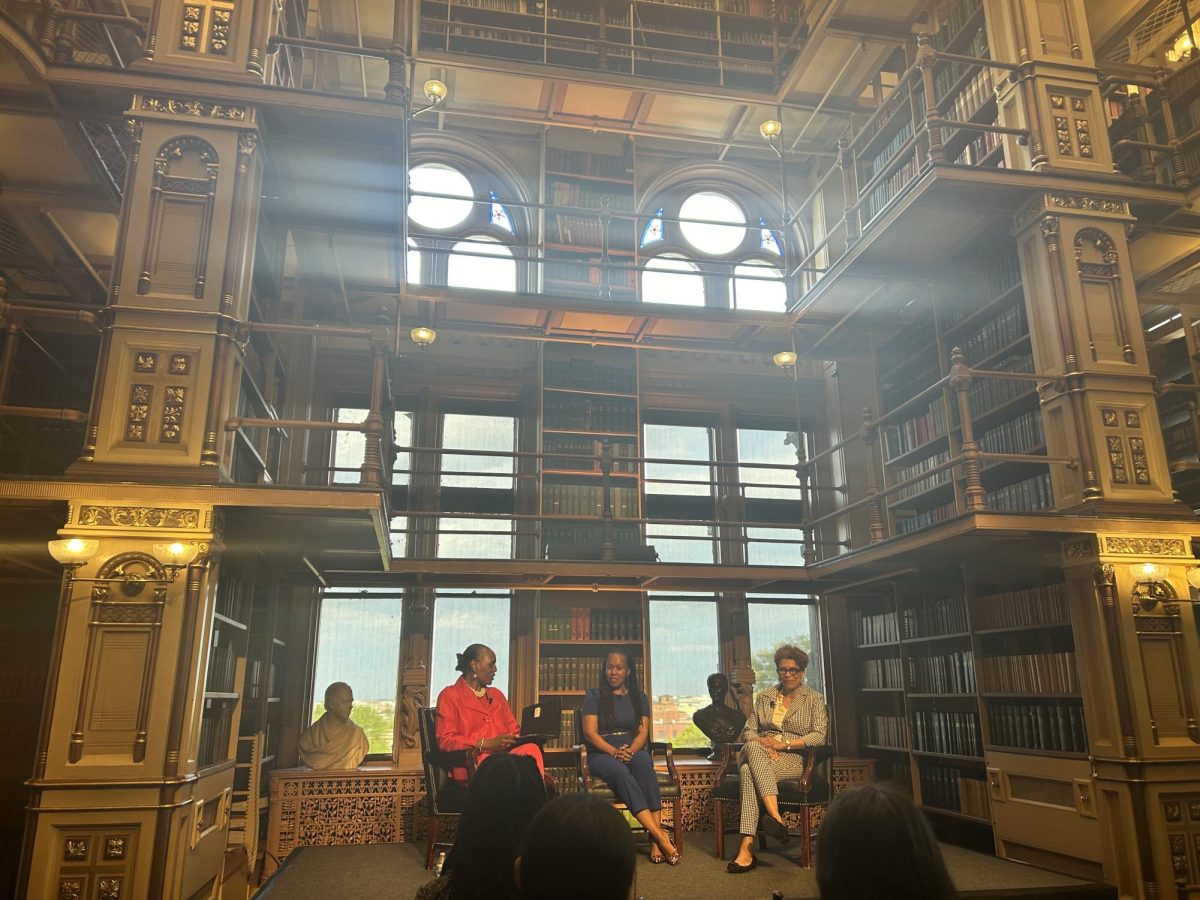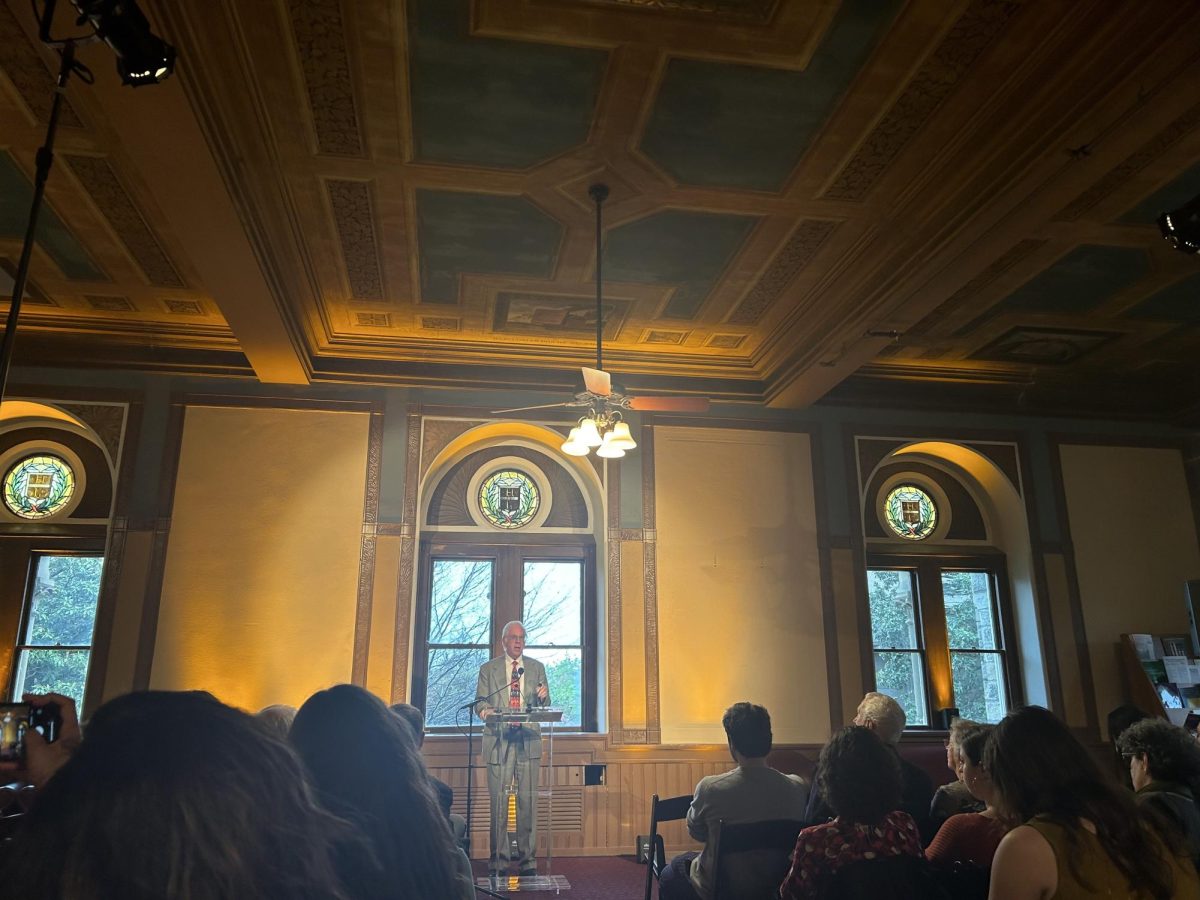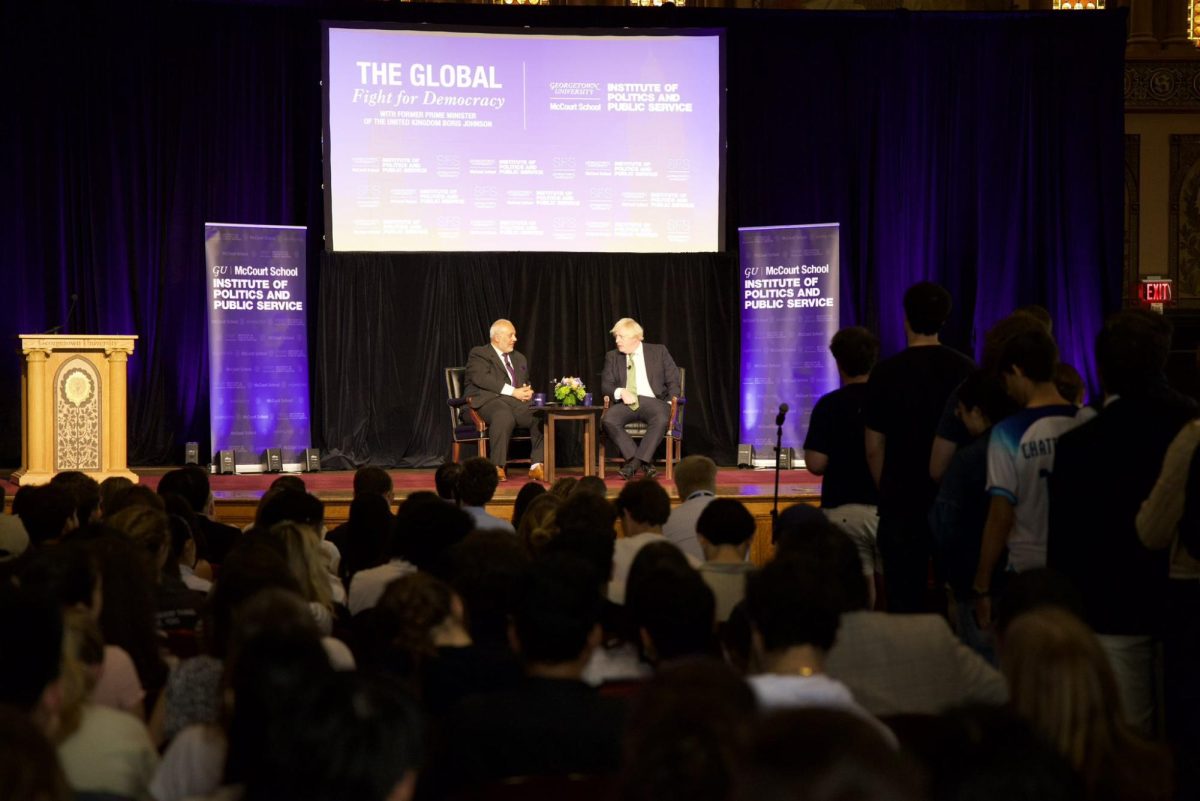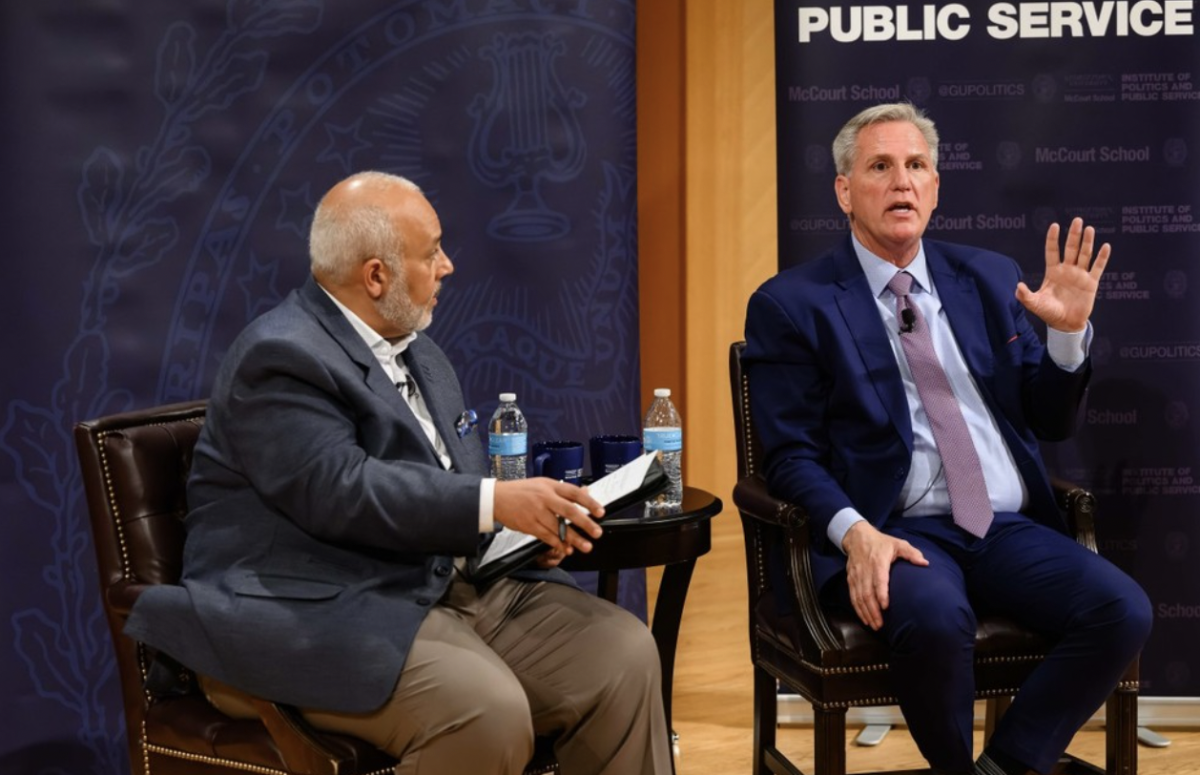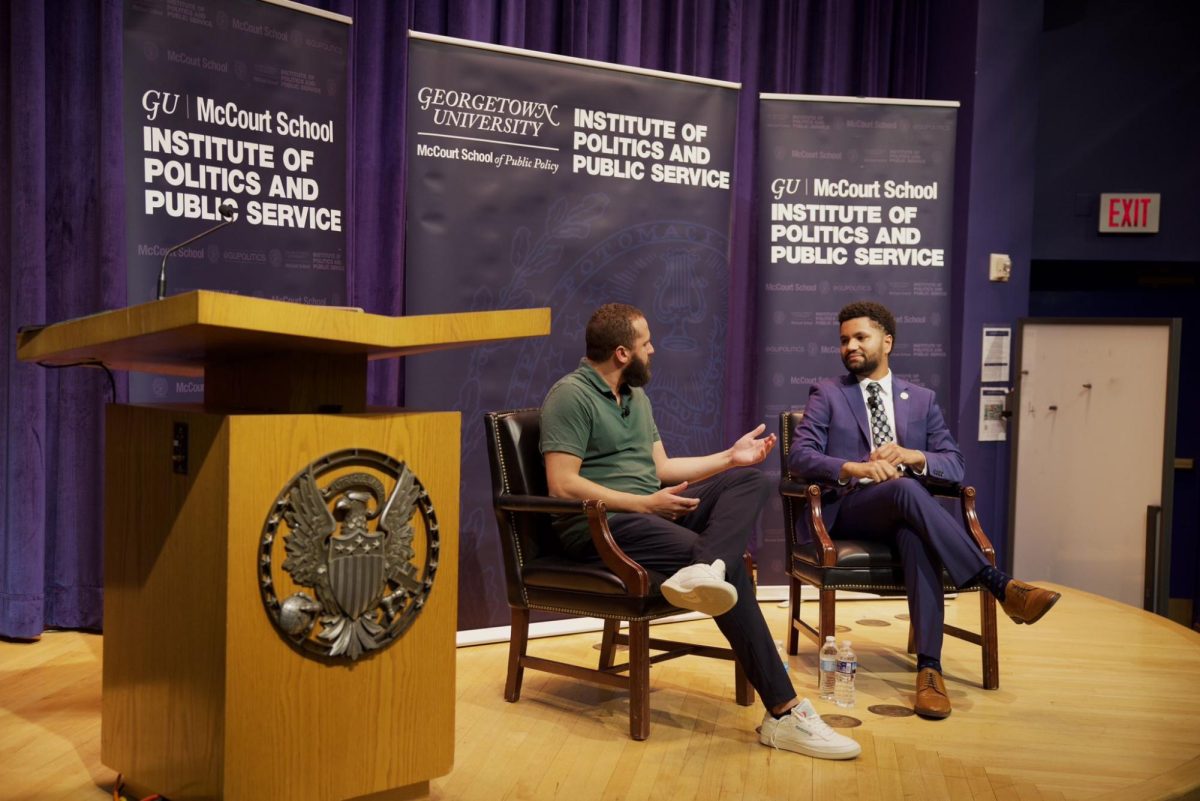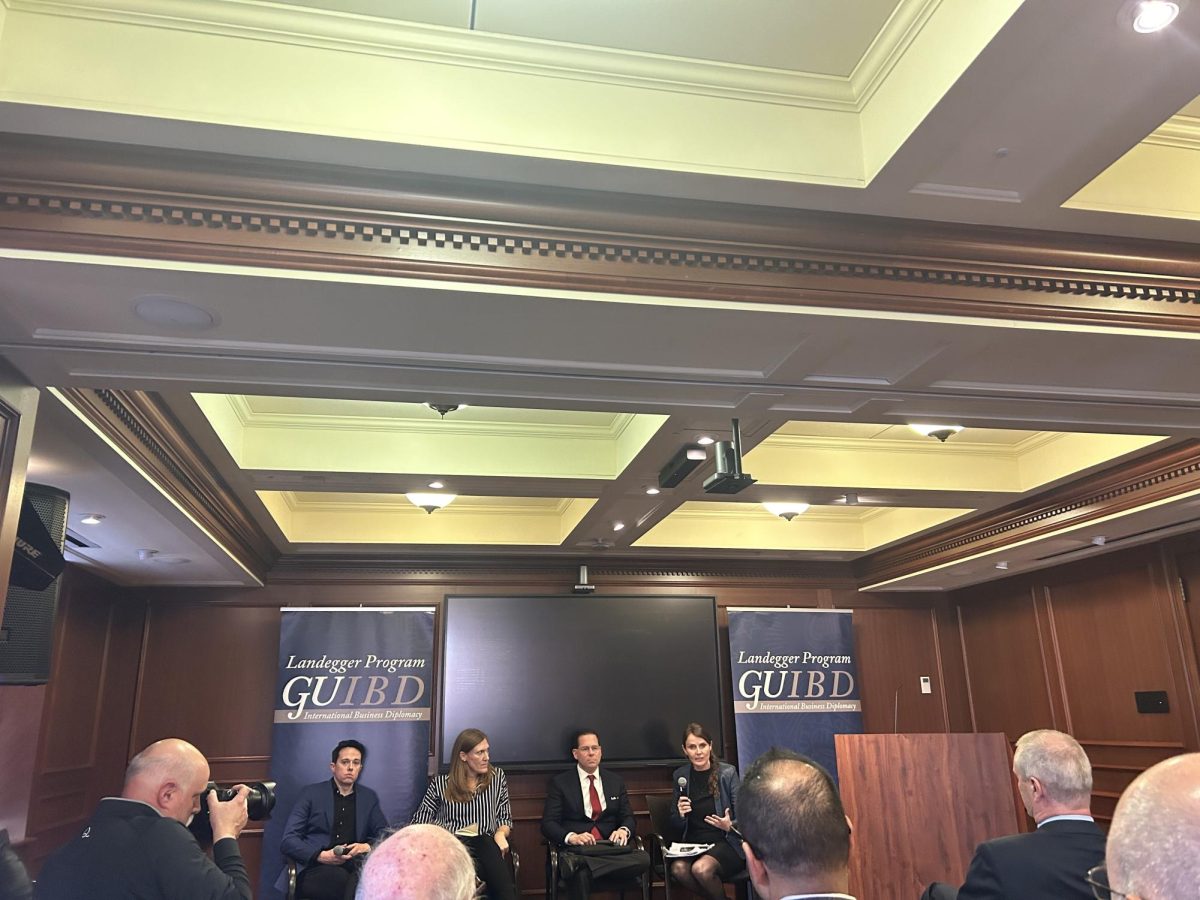A panel of human rights specialists emphasized progress made on human rights and shared their career experiences at Hoyas for Human Rights (HfHR) and Georgetown University Law Center’s Human Rights Institute’s (HRI) annual Human Rights Summit on March 15.
The summit centered around the theme “Working Towards Justice: Human Rights in the 21st Century.” It featured a keynote address from HRI deputy director and Georgetown Law adjunct professor Michelle Liu (LAW ’13, ’20) as well as a panel discussion with Liu and three others with experience working in human rights-related fields.
Rebecca Cohn (CAS ’25), co-president of HfHR, said the summit aimed to provide a forum to discuss the status of human rights against the backdrop of ongoing conflicts in Ukraine and the Middle East.
“Through this year’s theme, Working Towards Justice: Human Rights in the 21st Century, we wanted to place our conversation about human rights in practice in the current moment, when human rights seem under attack around the world,” Cohn wrote to The Hoya. “We were fortunate to have the most wonderful panelists, whose insights reflected their knowledge and enthusiasm about the field of human rights.”
In her keynote address, Liu discussed her path to human rights work and her observations on the industry. She said human rights advances have often come out of adversity and hardship.
“History has shown us time and again that change is possible, even in the most dire of circumstances,” Liu said at the event. “After all, the modern-day international human rights system emerged out of the devastation of World War II and the Holocaust. It is in the face of adversity that individuals and communities have come together to fight for what is right.”
Diann Rust-Tierney, a panelist who works as an adjunct professor at the Georgetown University Law Center and executive director of the Racial Justice Institute, and formerly the executive director of the National Coalition to Abolish the Death Penalty, said she has let her core values and passions guide her through her three-decade career in civil and human rights advocacy.
“The lesson, for me, in my career is: Go to the place where you can do the thing you need to do,” Rust-Tierney said at the event. “Go where your heart leads you, know that there’s a lot of work, wherever you branch, where you need to be at that time and where you’ll learn the lessons, and then make your choices based on your own personal mission, where you think you need to be, to do the work you need to get done.”
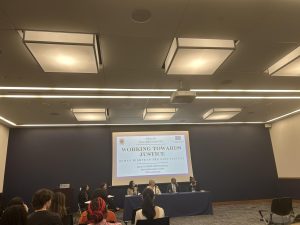
Tahir Duckett (LAW ’17), executive director of the Center for Innovations in Community Safety and a founding executive committee member of Law for Black Lives D.C., said he utilizes skills he learned in human rights-related jobs frequently with his current work on policing.
“The same skills I learned when I was litigating disability discrimination cases, or Title IX cases, are still things that I still use today, just in the policing context,” Duckett said at the event. “I think when you have commitment to doing good work, you don’t have to be locked into, ‘I’m only going to do good work in one way.’”
Elizabeth Ferris, director of the School of Foreign Service’s (SFS) Institute for the Study of International Migration (ISIM), said she has noticed progress regarding human rights over the years, particularly with refugees.
“Progress has been made,” Ferris said at the event. “Sometimes you don’t see it when you’re in the thick of it because everything just looks so dire, and then you step back in a couple of years and say ‘Hey, we’ve really come a long way, and maybe, just maybe, I played a small part in that,’”
Roma Jha (SOH ’26), co-president of HfHR, said attendees benefitted from the panelists’ diverse perspectives and insights that encouraged a multitude of paths toward human rights advocacy.
“The panelists were able to provide career insights, which was incredible,” Jha wrote to The Hoya. “What felt most meaningful was their advice on how to navigate a field that is so expansive and, oftentimes, daunting for students. They emphasized that human rights advocacy can look so different for so many people, and that is totally fine. It’s more about finding the ways to advocate that feel natural and empowering for us as individuals.”
Duckett said that while human rights advocates should continue pushing for large changes, they should also ensure they celebrate the small wins that also change lives.
“The little things that we do, the little steps that we take, can have enormous impacts on someone’s lives,” Duckett said. “We’re going to push for big, huge, radical changes, and we have to be able to hold and enjoy and celebrate when there are small changes.”








